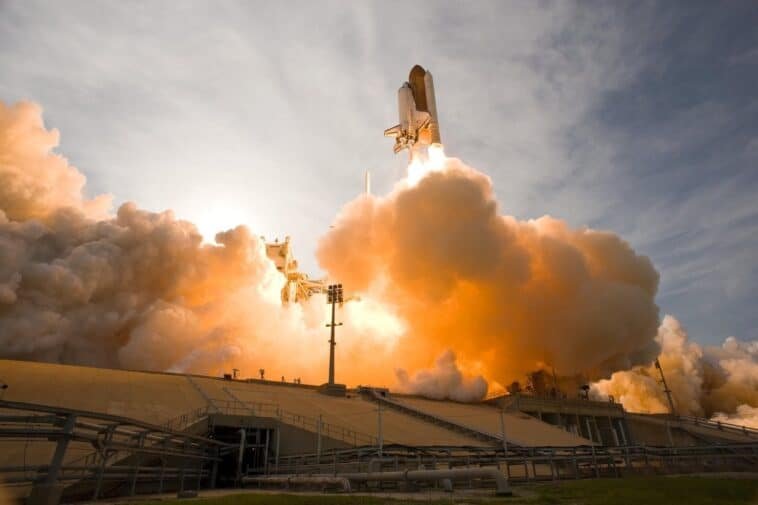Technology is revolutionizing the aerospace industry. Technological advancements have transformed travel and exploration of space in recent years. From design innovations to more efficient manufacturing processes, these technological advances are making aircraft and spacecraft safer, faster, and more reliable than ever. Below is a look at how technology is advancing the aerospace industry.
Design Improvements
Because of technology, aerospace engineers can now create aircraft designs that are stronger and more efficient. Computer-aided design (CAD) technology allows for quick and easy changes to a design, reducing the time it takes to draft blueprints and make modifications. This technology also allows for simulations of different scenarios and speeds, improving safety during flight tests.
There have also been advancements in materials technology. Aerospace engineers use composite materials, like carbon fiber and nylon-reinforced polymer alloys, to reduce aircraft weight while maintaining strength and durability.
Must Read: How To Design a Government Website
Manufacturing Improvements
Aerospace manufacturing has become more efficient thanks to technology. Automation tools and robotics have been introduced, allowing components to be machined with precise measurements and accuracy. These tools also reduce labor costs, helping to bring down costs for airlines and spacecraft developers.
3D printing is also used in the aerospace industry, providing manufacturers and engineers with a quicker way to produce prototypes. This technology allows them to design lighter and more efficient parts than traditional ones.
Must Read: Quickbooks Error 80070057
Communication Advances
Technology has greatly impacted how aircraft communicate with each other and air traffic controllers. Automated systems are now in place, allowing for more efficient communication between pilots and ground personnel. Data links can also provide real-time updates on weather conditions, helping pilots better navigate their routes.
In addition, satellite technology is being used to provide improved navigation capabilities for both military and commercial aircraft. This technology allows pilots to track their exact location at any time, making flying safer and easier.
Must Read: Google Bard
Space Exploration
Innovations like 3D printing and robotics have enabled spacecraft designers to create smaller, more efficient vehicles than ever before. These advancements allow us to explore further and faster into the unknown while staying within our budget.
In addition, satellites have revolutionized our understanding of the universe. Through these devices, we can monitor weather patterns, track asteroids and comets, and study distant stars. This technology has truly opened our eyes to wonders beyond Earth’s atmosphere.
Must Read: Auto Repair Shop Needs Auto Repair Software
Management Systems
Technology is being used to develop better management systems for aircraft and spacecraft. These systems allow us to track our vehicles and monitor their performance so that any issues can be identified and resolved quickly.
Computerized maintenance and repair programs have also been developed, allowing airlines to schedule maintenance more efficiently and cost-effectively. For example, a turnkey ERP solution can help monitor and manage aircraft parts. This helps reduce the risk of errors and improves the efficiency of operations.
Security Improvements
Technology has also enabled us to develop better security systems for aircraft and spacecraft. Sensors and cameras are now being used to monitor our vehicles in real time so that any suspicious activity can be identified immediately. This helps to keep travelers safe and secure while in the air.
Advanced encryption techniques are being used to protect data sent between aircraft and ground personnel. The result is that only authorized personnel have access to sensitive information, making it much more difficult for malicious actors and hackers to gain access.
Must Read: What Controls Does the Webinar Host Get During Screen Share?
Increased Connectivity
Aircraft now have access to better communication systems, allowing them to send and receive data with greater speed and accuracy thanks to technology. This allows pilots to stay connected while in the air, giving them access to navigation aids and weather updates that can help make their journey smoother.
In addition, Wi-Fi is being installed on many aircraft, allowing passengers to stay connected during flights. This makes long journeys more enjoyable for travelers and helps reduce stress levels for crew members who must remain focused on their duties.
Autopilot
Many aircraft now feature autopilot systems, allowing pilots to fly without direct intervention. These systems are equipped with sensors and cameras that help them better adjust their course while in the air. This helps increase safety levels and reduce fatigue for pilots with long journeys ahead of them.
Autopilot technology is also being used to create autonomous drones that can be used for research purposes or even military operations. This provides greater flexibility and convenience, allowing us to explore the world like never before.
Conclusion
The aerospace industry has made tremendous strides in efficiency and safety by utilizing the latest technology. From 3D printing and robotics to navigation aids, encryption techniques, and autopilot systems – the possibilities are truly endless. With these innovations advancing rapidly, it is clear that the future of aerospace is bright.






